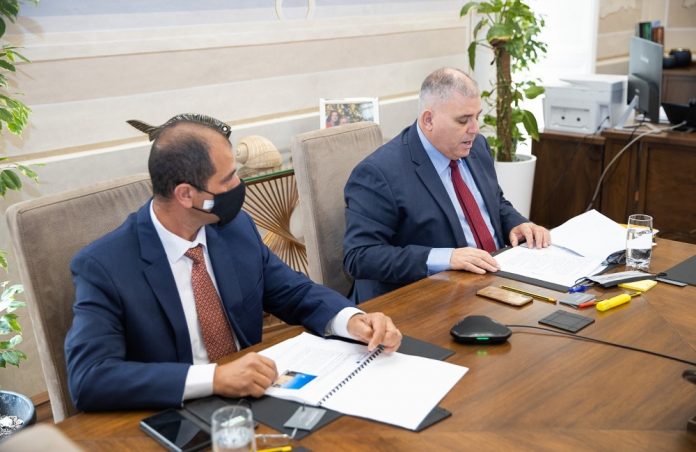Given the significant negative impact that Invasive Alien Species (IAS) have on our biodiversity, FAST – Fight Alien Species Transborder project is expected to continue strengthening the action that is being taken by the government in order to reduce such impact.
The launch of the project was addressed by Minister for Agriculture, Fisheries, Food and Animal Rights Anton Refalo, Minister for the Environment, Climate Change and Planning Aaron Farrugia and Parliamentary Secretary for European Funds Stefan Zrinzo Azzopardi.
Minister Farrugia announced that, in 2020 alone, about 100 tons of terrestrial IAS were removed in the Maltese islands. “Malta considers IAS to be a very important issue, and has been actively working towards managing and controlling IAS through various means including various policy considerations and initiatives taken up through the years. The removal of various species is ongoing in joint action between ERA, Ambjent Malta, various NGOs and site managers.”
“Prevention is key in tackling invasive alien species. A national surveillance system is now in place including dedicated personnel responsible for on-site monitoring, as well as dedicated citizen science schemes to support the early detection and monitoring of invasive alien species. The FAST project is set to contribute to the achievement of key targets in Malta’s National Biodiversity Strategy and Action Plan, as well as to the requirements of the relevant EU Nature directives, on the prevention and management of the introduction and spread of IAS,” Minister Farrugia said.
During the press conference, Minister Anton Refalo explained that; “The role of the Ministry in the FAST project will aim to counteract the introduction, naturalisation and spread of alien invasive species that damage biodiversity in the Maltese archipelago by means of targeting and evaluating IAS in Natura 2000 sites, and controlling, monitoring and possible eradication of IAS. Propagating native plants that will later be introduced in the Natura 2000 sites. Compiling guidelines and best practices to prevent the introduction of other IAS. Last but not least, educating and promoting environmental protection.”
He also emphasized that; “The Ministry will work hand in hand with the University of Malta as the other Maltese project partner and in collaboration with ERA and Ambjent Malta, all under the supervision of the University of Catania as the project leader. This will be possible by the monitoring and evaluation of Invasive Alien Species on local habitat and the eventual restoration of such natural habitats over the 30 month duration of the project, which will end in May 2023.”
Parliamentary Secretary Stefan Zrinzo Azzopardi said that project ‘FAST’ has a total allocation of €1,599,120, co-financed with European funds from the Interreg Italia-Malta programme. He explained that the Interreg Italia-Malta’s aim is to contribute towards sustainable and inclusive growth by protecting the environment, promoting cultural heritage and improving the quality of life of the Maltese and Gozitans.
Dr Zrinzo Azzopardi stated that about 1,000 citizens will be made more aware of these environmental issues with this project. He concluded by saying that this project is in line with the strategy of the European Union, addressing the loss of biodiversity and the degradation of the eco-system services, as well as their restoration, within the possible limits, on the Union’s territory.










